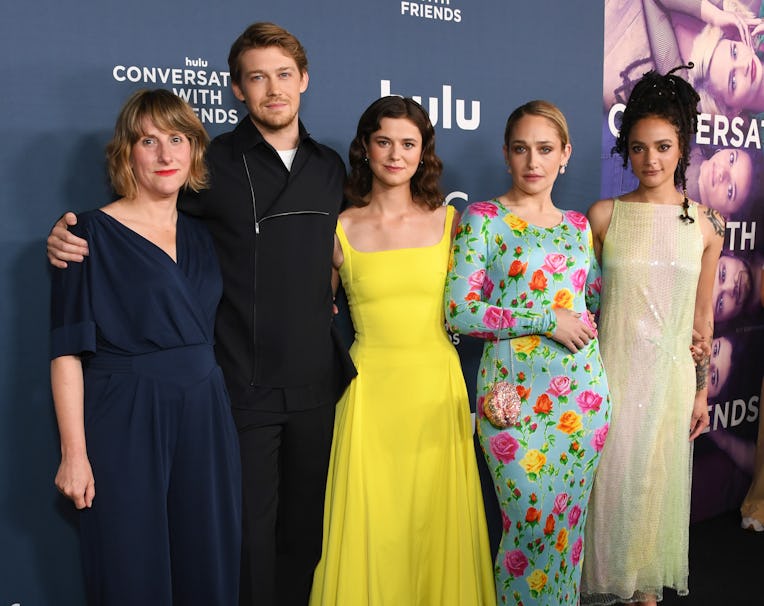'Conversations With Friends' Is a Triumph of Boring Television
With two of the most unremarkable leads imaginable, the show feels almost hypnotic

The latest Sally Rooney screen adaptation, Conversations With Friends, is a miniseries built on the hope that its audience can sense a vibe. Following the success of 2020’s Normal People, which launched the careers of a new crop of bland actors (mainly protagonists Paul Mescal and Daisy Edgar-Jones), Conversations With Friends has more or less the exact same general premise. Both series follow sexy pale young people who cannot communicate their truest desires and yearn for one another so much it makes them self-destruct.
Both of these premises work adequately in the form of a novel. In Conversations With Friends, we follow the story of Bobbi (Sasha Lane) and Frances (Alison Oliver), two university students in Dublin who once dated. At a poetry show one night, they befriend Melissa, a famous essayist, and later her actor husband Nick (Joe Alwyn), who are both older than Bobbi and Frances. While the lively Bobbi connects platonically with Melissa, Frances and Nick begin a secret affair that is mostly propelled by what they cannot say out loud to one another. Instead, they correspond via email and text message.
The series follows the novel closely enough, but the book’s content does not translate to screen in the remotest sense. Bingeing the series, I almost couldn’t believe what I was experiencing: nothing. Twelve whole episodes of nothing.
Oliver plays Frances Flynn to the best of her ability. An actor with no other credits on IMDB and not even a Wikipedia entry, Oliver is a true nobody — and sadly remains a nobody as the series progresses. I don’t think it’s entirely her fault: the character of Frances could not be more non-compelling, even for the most talented actor. In the novel, Frances is quiet and observant, which unfortunately translates into boring and unremarkable on screen. We are supposed to believe Frances is a mysterious young woman with a rich inner life, but instead we spend hours watching her sit expressionless writing bland texts to Nick.
Nick is the show’s weakest link. This is the third time I have seen Alwyn in something, and I am still trying my hardest to understand why every year since his big-screen debut (Ang Lee’s 2016 flop Billy Lynn's Long Halftime Walk) he is touted as the next big thing. Nick is significantly older than Frances (in real life, Alwyn is 31 and Oliver is 23), and Alwyn’s portrayal of a man in his mid-thirties is dead eyed, dead voiced, and wooden. Go on girl, give us nothing.
The only moments of respite come when Melissa and Bobbi are on screen. While the two are given even less than Frances and Nick to work with, both their presences are an accomplishment — they manage to feel like real people, in sharp contrast to Alwyn and Oliver.
In its own backwards way, Conversations With Friends is an accomplishment: In a time where so much entertainment hinges on how much an audience can care about the most boring white leads imaginable (think Louisa Jacobson The Gilded Age, the non-Sterling K. Brown parts of This Is Us, and Ava on Hacks) the series excels at being the most boring of them all. Read the book instead.